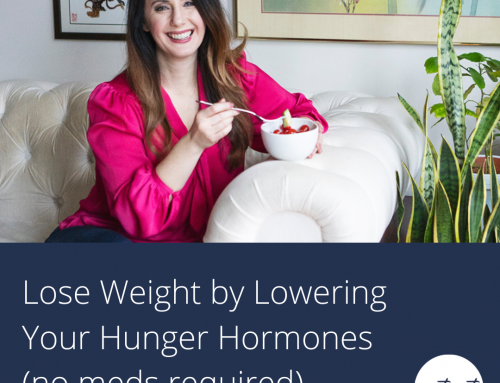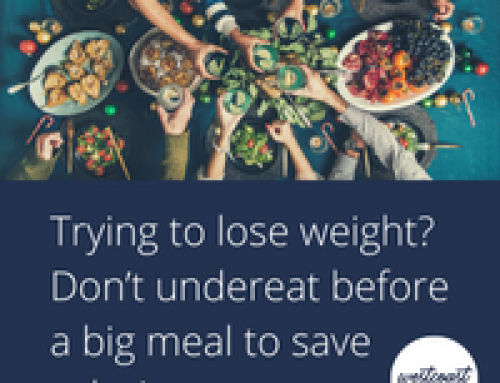Finding the right way of eating (a healthy diet for YOU) is essential for results and health that actually stick, whether those results are energy, a happy gut, or getting and keeping weight off. But there are so many bad diets out there leading you astray! Here’s how to sift through good and bad science, and keep focused on what healthy diet works for YOU.
What makes a diet or way of eating “bad”?
- You don’t feel healthy or energized on it
- It is too restrictive* to maintain for 1-2 years or more
- * Restrictive is subjective – some people thrive on a vegan diet, others feel restricted. Same with low carb/keto, low FODMAP, Whole 30 etc. The trick to success is to focus on your needs, not what works for everyone else.
- You are missing some or all of your favourite foods all of the time
- There isn’t flexibility built in to vent the cognitive pressure of sticking to something structured long term (planned treats, meals out, etc.)
- The marketing uses science-y sounding words and theories, but is mostly fear based -everything will kill you if you don’t do this- kind of arguments.
- It is being touted as “the only diet” or the “perfect” diet for everyone. Nutrition science debunked a one sized fits all approach long ago.
- Calories (for adults) are limited below 1200-1500 calories for any longer than 8-12 weeks
- It doesn’t consider diet quality. “Dirty” keto, a primarily processed, high-carb, plant-based diet, Carnivore, etc. are all short on key micronutrients like Calcium, Magnesium, Potassium and an array of anti-inflammatory and antioxidant nutrients. You might lose weight or feel better temporarily but you will harm your health long term.
When you see a friend, family member, or even a well meaning health professional try to sell you that they have found “THE” diet, thank them for their advice and move on. I have spent over a decade keeping tabs on nutrition research, and if we have learned anything it is that there isn’t one approach that works for everyone’s metabolic health, physical need, or long term sustainability. What works for them may not be right for you, even if their rapid success is seductive. And moreover, we all feel rah-rah pumped about a diet while we’re in the early phases (we’ve all been there!) before we’ve burned out our willpower. Wait and see how they feel in 6-12 months while you explore your own nutrition needs and preferences before jumping on another bandwagon.
How to find YOUR right diet
We’re looking for two key things:
- You feel good! You should feel healthy, energized, happy.
- Any health conditions like Irritable Bowel Syndrome, high blood pressure, Diabetes etc. should see your symptoms or blood work improve gradually over time (3-6 months).
1. It is totally okay to experiment! There is a lot of shame-y kind of talk around trying out different diets or ways of eating, but I’m a big believer that sampling some of the different approaches may help you find what works. The trick is to do it in an organized way so you can figure out what actually works long term.
Find a style of eating or diet that appeals and commit to doing it 80% of the time (make room for real life) for 3 months. Track how you feel and your health markers before and during so you can document any changes in energy, sleep, mood, weight, health etc.
2. Be brutally honest about what is sustainable. Going sugar free or keto is super appealing, because doing it feels like it would be SO empowering when you are struggling with cravings or portion control. But what about after 1-3 months is over? Will it feel empowering or limiting? (It could be both). How will you handle birthdays, your partner bringing home a treat, snacks in the lunchroom? Do you really enjoy a good glass of wine or piece of chocolate and derive pleasure from it? Or do you actually feel satisfied and happy on a diet that excludes these things long term? There is no right answer here, but KNOW THYSELF.
3. Identify if you need a new diet or a new skill set. If you struggle with cravings, emotional eating, or portion control no diet will work until you find someone to help you build these skills into lifelong habits so you can get off that on-diet-off-diet rollercoaster (check out our 6 week Conquer Your Cravings program if this sounds like you). It sucks, but it’s the truth. If you have high blood sugars, are seeing signs of hormonal dysfunction like irregular periods, or have a cranky digestive system you likely do need to focus on the food.
Need some help getting your meals for the week balanced and prepared? If you’d like to receive our free Meal Planning Getting Started Guide AND get in on our weekly emails about all things nutrition so you can get clarity and confidence on what you’re eating, join us here!







